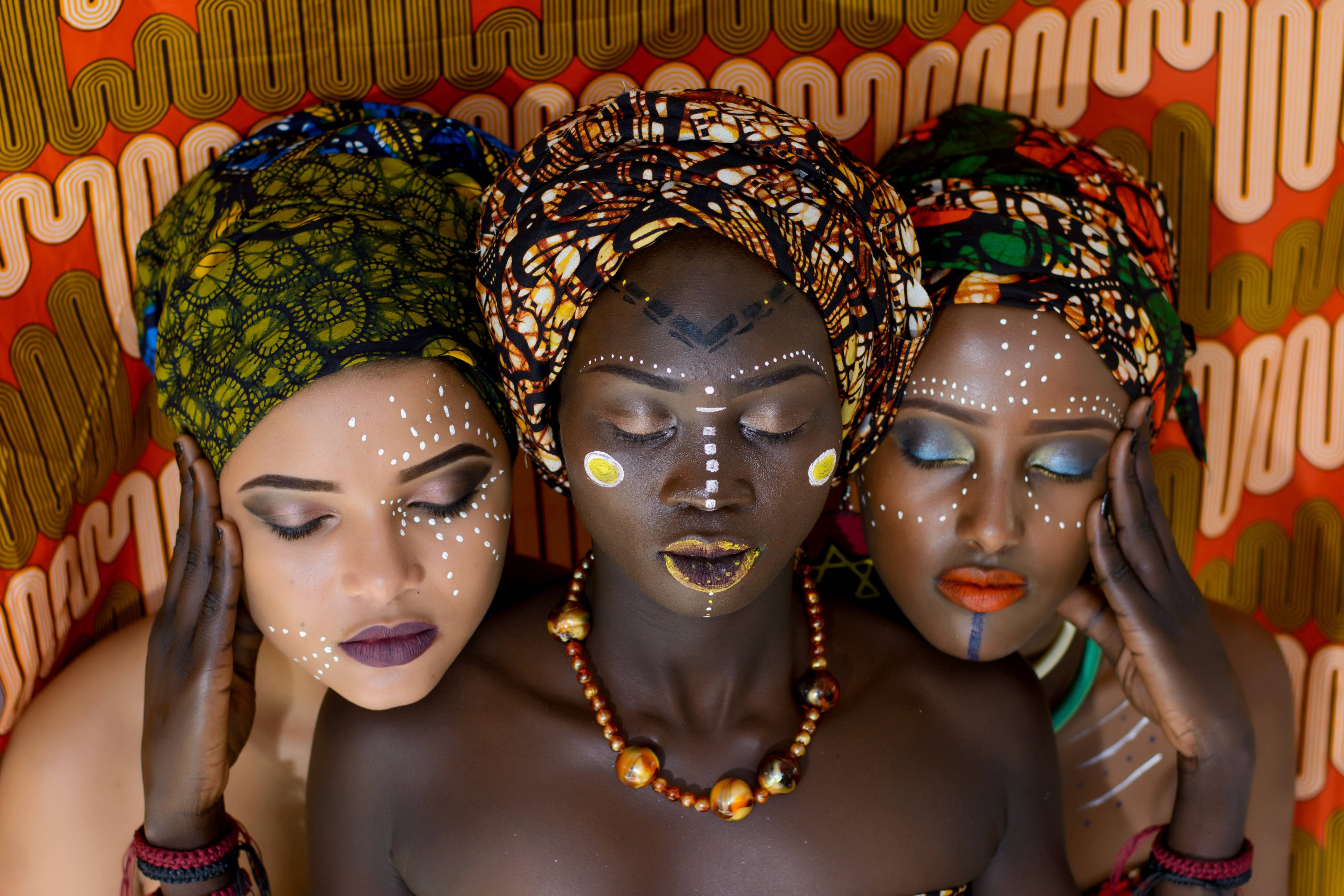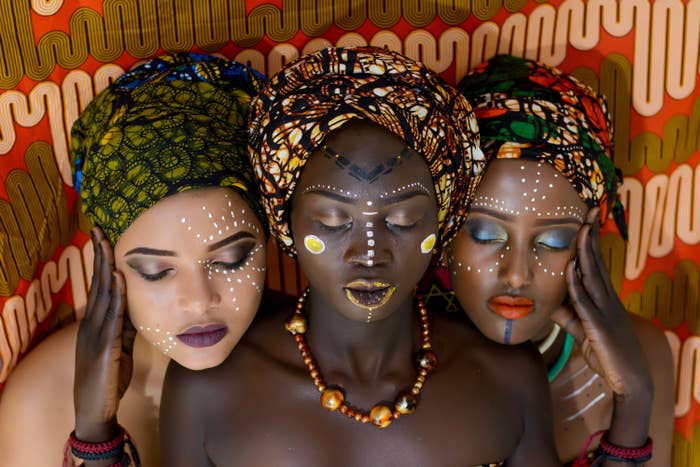
To be Black in America is to live through a continuous cycle of exhaustion—from slavery to civil rights to Black men and women being killed at the hands of police and even the plague of grind culture fueled by Western values. We’re tired, literally. In the midst of the pandemic, Black and brown people, who largely work on the front lines and are typically underpaid and overworked, are being thrust back into the workforce by politicians who have succumbed to the mobs of white people who are distraught about not being able to get a haircut. But no one has stopped to think that they, too, need a break. In addition, there has been a lot of dialogue regarding what people should be doing in their “free time,” when in actuality a lot of people are working from home, unemployed, morphing into full-time teachers, protesting, or simply trying to stay alive.
The answer is rest.
The reality is that Black and Latinx Americans, according to a National Sleep Foundation study, spend 15 percent of their night in deep sleep (considered the most restorative phase), compared with white Americans’ 20 percent. We tend to reward ourselves with rest, vacations, and self-care in response to accomplishments rather than entrenching these practices in our everyday lives, because we’ve been conditioned to only reward ourselves for success and after the point of exhaustion. Aside from being on the front lines of protests and the pandemic, Black people have long endured trauma and oppression that inhibits them from being idle and establishing healthy sleep habits. It is critical that rest be intertwined in the fight to overthrow systems that don’t address our struggle to survive.
And a growing number of organizations believe the same.
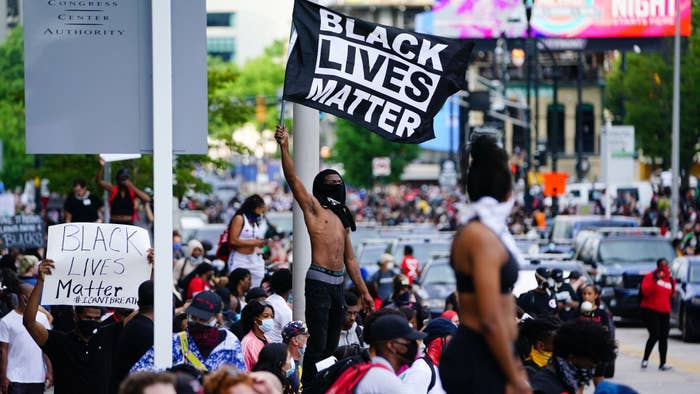
Bill Fish, certified sleep science coach and managing editor of SleepFoundation.org, says while the sleep schedule of essential workers may not be impacted by the pandemic, the stress of the situation is leading to a tremendous amount of insomnia for many. “Essential employees are risking their health as well as the health of their families as they perform functions that make our lives easier while exposing themselves to health dangers. We strongly suggest stopping the use of screens an hour before going to bed. It is important to allow the mind to rest after a stressful day,” he says. The Sleep Foundation has updated its guidelines for getting adequate sleep during the pandemic and named “disruption of daily life, anxiety/worry, greater family/work stress, depression, isolation, excess screen time, and stress-related fatigue” as key factors of difficulty sleeping.
Fish acknowledges that those who are working from home and are unable to separate home and work life are also experiencing disruption and difficulty with sleeping, as they may be altering their schedules intentionally and unintentionally. “People working from home, on the other hand, have had the structure of their lives turned on its side. All kids are out of school, no sports practice, and basically no commitments. In these situations, it is easy to drastically change your sleep schedule. The problem with that is that each of us is equipped with an internal 24-hour clock known as our circadian rhythm. This tells us when to rest and when to be alert, but it craves consistency. When your sleep schedule is varied, your body may start to rebel,” he says. In addition, the Sleep Foundation encourages naps and relaxation techniques such as listening to music and meditation as ways to promote better sleep.
Throughout the pandemic, grind culture has presented another challenge, as people have encouraged others not to be “lazy.” People denounced relaxing and binge-watching Netflix shows as unproductive, and instead pushed for others to come out of quarantine with a new skill or a business plan—comments that have flowed from a sector of Twitter users have jokingly dubbed “Rise and Grind” and “Grind and Hustle” Twitter. Grind culture has conditioned Black and brown people to be worker bees and feel less-than if we aren’t consistently working at our 9-to-5, 24/7, and maintaining a lucrative side hustle, and right now it is vital to defer that thinking.
Navild Acosta and Fannie Sosa, artists and the founders of Black Power Naps, are using their platform to explore the sleep gap and reclaim laziness and idleness through naps, multi-layer installations, performances, opera and more. Sosa declares that no one is truly lazy and sees boredom as a radical statement that removes elements from your day-to-day life to allow you to focus and center. “Downtime is often seen as an interruption of a mission, dream, and your hustle,” Sosa says. “It’s a perfect tool to master, and it is an investment in yourself. We don’t go dormant during downtime. Our mind, spirit, and body are still processing. If we believe in the values we say we do, then it is one, too. Grind culture just keeps us in line,” says Sosa.
“We will not apologize for fighting against a system that doesn’t care if we live or die, as long as we work. But we also won’t apologize for resting, because we have long been doing the work—and we still are.” - Mikeisha Dache Vaughn
Acosta wants us to completely rid ourselves of the misconception that people are just sitting around if they’re not being productive. “We’re in a global pandemic, and we have to realize what we’re doing to our psyche. We’re not just getting downtime. This isn’t a walk in the park. People like to think people are sitting on their ass, smoking, chillin’, but we need to because we’re all stressed. Some of us are not in safe situations and homes. Some of us don’t have homes. Some of us are essential workers. So many Black and brown people are actively on the front lines. They’re not OK, “ Acosta says.
But Tricia Hersey of the Atlanta-based Nap Ministry contends that the conditioning to always be going and not be lazy is nothing new. “People are seeing it in real life right now—like, really deeply—because of the pandemic. But I’ve been seeing it since I started,” Hersey says. “I’m interested and I’m observing and seeing how this is really shining such a light on how deeply we are into this grind culture, how deeply we’ve been brainwashed, how deeply we’ve been socialized. So it’s not surprising at all to me—it’s the culture we’ve lived under since birth.”
Hersey founded the Nap Ministry in 2016 as a way to examine the liberating power of naps through nap workshops, performance art, and site-specific installations, while also serving the Black and brown community as a tool for healing. She believes in rest as a form of resistance and reparations, and names sleep deprivation as a racial and justice issue. According to Hersey, everything about Western society encourages people to prepare for the workforce — even at a young age. “From the time we’re little, we’re taught not to lay down all the time. Even the way the school systems are set up. They start taking away recess and nap time. Children have nap time when they’re in preschool and kindergarten, and then they just steal that away and make kids sit at their desks for eight hours, then they’re up all day doing homework. This concept of always going and doing, and having to start putting work together, is deeply ingrained in our culture from all levels,” says Hersey.
In a 2019, BuzzFeed article, news reporter Anne Peterson explored how millennials became the burnt-out generation and how other generations laugh at the complaints of “adulting,” a verb created by those who came of age at the turn of the millennium. Through her own experiences, she realized she had been conditioned to “work, work, work,” as many her age have. “That realization recast my recent struggles: Why can’t I get this mundane stuff done? Because I’m burned out,” she wrote. “Why am I burned out? Because I’ve internalized the idea that I should be working all the time. Why have I internalized that idea? Because everything and everyone in my life has reinforced it—explicitly and implicitly—since I was young. Life has always been hard, but many millennials are unequipped to deal with the particular ways in which it’s become hard for us,” writes Peterson.
“Rest and sleep deprivation is a racial and social justice issue.” - Tricia Hershey of the Nap Ministry
Unfortunately, Black and brown people are fighting two fights simultaneously, racial disparities in healthcare and racism itself, two entities that actively contribute to the shortening of our lifespan and need to be dismantled, for systemic racism exists in many capacities. For centuries, the word “reparations” has been thrown around, to engage Black people, to keep them hanging on and continuing to give to a country that’s stripped them of so much. Reparations have been slow to come (and quite nonexistent), although there have been various conversations about them. And during the 2020 presidential race, many of the Democratic candidates voiced their support for the idea. People are tired of the what-ifs and maybes, leaving them to seek reparations in different forms. Rest is one of them. The reality is that rest is afforded to those at the helm of capitalism and privilege—white people—while Black people have to fight for a moment of relaxation.
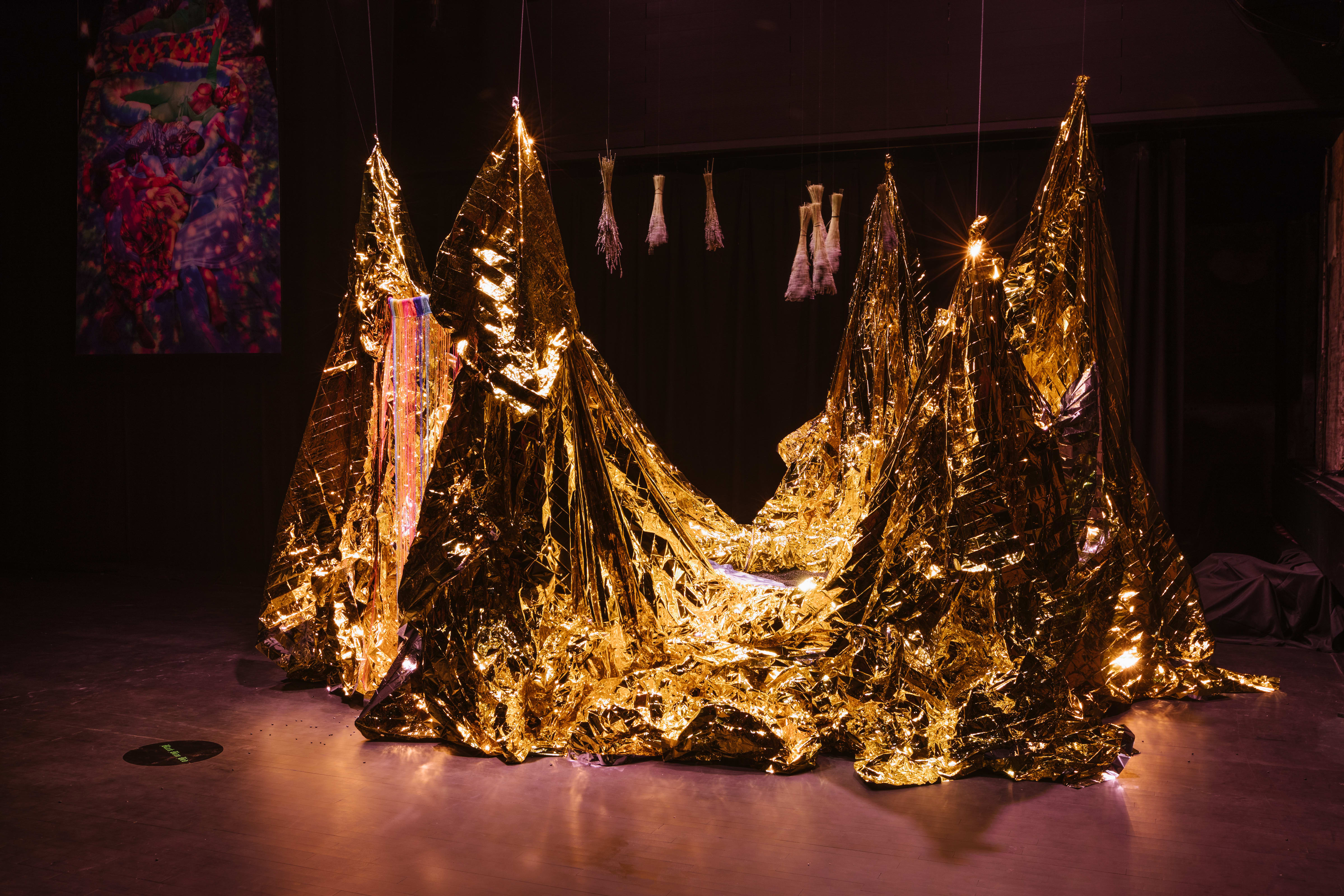
And when you add in the notion that Black people have to be “three times better” than their counterparts, you get situations such as what happened to Lolade Siyonbola in 2018. A first-year graduate student in the African Studies department at Yale, Siyonbola had papers and books spread out in a common room while writing a paper, but had flipped off the lights and gone to sleep. A white woman walked in, turned on the lights, and what followed was a racially tinged, police-involved dispute that added “napping” to the long and growing list of things it is unacceptable to do while being Black. Like Siyonbola, Black and brown people should not have to do anything outlandish to prove that they are justified in seeking rest and relaxation, but such is the struggle when you’re dealing with white privilege in America.
Dom Chatterjee of Rest for Resistance realized just how much privilege is required to access rest, making a single act of self-care a revolution of sorts. “Each decision to resist capitalist pressures, to disengage from harmful systems of power and truly rest, is a transcendental moment. And these moments of resistance can snowball into a full-force blizzard, bringing earth-shaking natural boundaries to help us stay in and catch a break,” they say.
“Grind culture just keeps us in line.” - Fannie Sosa of Black Power Naps
For Acosta, resistance means repairing generations that have experienced a lack of rest and sleep deprivation, pushing for a conscious shift, and looking at the ways that we navigate capitalism. “Pleasure is fuel; it’s not a reward,” he says. “Waking up, having some coffee or tea, sitting in the bathroom, looking at my phone, connecting with friends and trying to do something consistent like stretching.” In the Black community, the reward is always the goal that comes after the stress and strain has already been placed upon Black bodies. The need for self-care—a chance to breathe and detach from the rigors of the 9-to-5—only comes as a short-lived reprieve from being bone tired and exhausted and not as a routine that helps keep Black people healthy and well-rested.
Dismantling grind culture would further provide a space for Black people to combat many of the factors that contribute to stress, exhaustion, and mental health issues and prevent them from healthy rest and sleep. Hersey says it’s vital to our survival.
“This has been transmuted into an internal struggle because when grind culture, a culture I’ve been wanting to see on its knees, is slowing down a little bit—we’re keeping it alive,” Hersey says. “We’re holding it up. We can’t stop and we can’t get off it. So it becomes this deep internal process and we see how much trauma is really around rest and sleep for Black people. Rest and sleep deprivation is a racial and social justice issue. It’s not just something cute to be talking about. It’s a public health issue, specifically for Black people—we’re dying from it. It pushes so many things in our bodies. We’re just exhausted from dealing with America and seeing all of the trauma and oppression that is placed on us.”
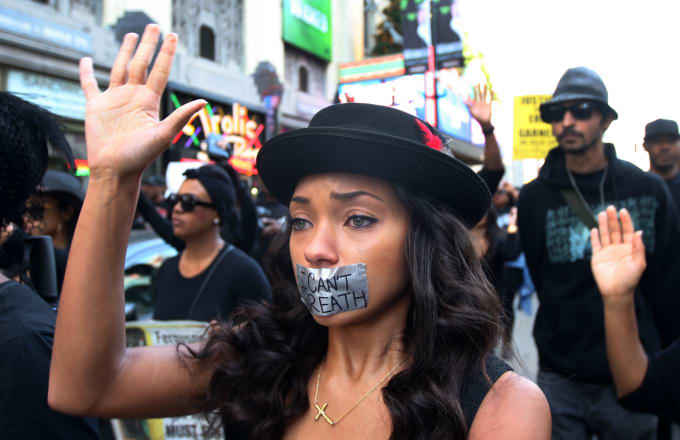
With stress and anxiety levels heightened since the deaths of George Floyd, Breonna Taylor, Ahmaud Arbery, and Tony McDade, Black people have been constantly submersed in Black trauma porn through social media and news reports detailing the gruesome details of Black deaths. In the midst of the masses protesting for justice and defunding of police, many have been left with a sense of guilt for feeling the need to unplug and recharge, but the reality is that it is necessary for our wellbeing. To keep fighting to dismantle systems that don’t care about us, we must take care of our vessel, and that means limiting screen time and resting.
“We inhabit the world very differently than folks who get to have leisure and rest,” says Sosa. “Rest and resistance, reparation and pleasure as power, is the liberation of the Black body. Liberation is seen as this act that we’re angry, sad, mad or tired, and our bodies are tired, but it can be seen as beautiful and soft too.”
We will not apologize for fighting against a system that doesn’t care if we live or die, as long as we work. But we also won’t apologize for resting, because we have long been doing the work—and we still are.
